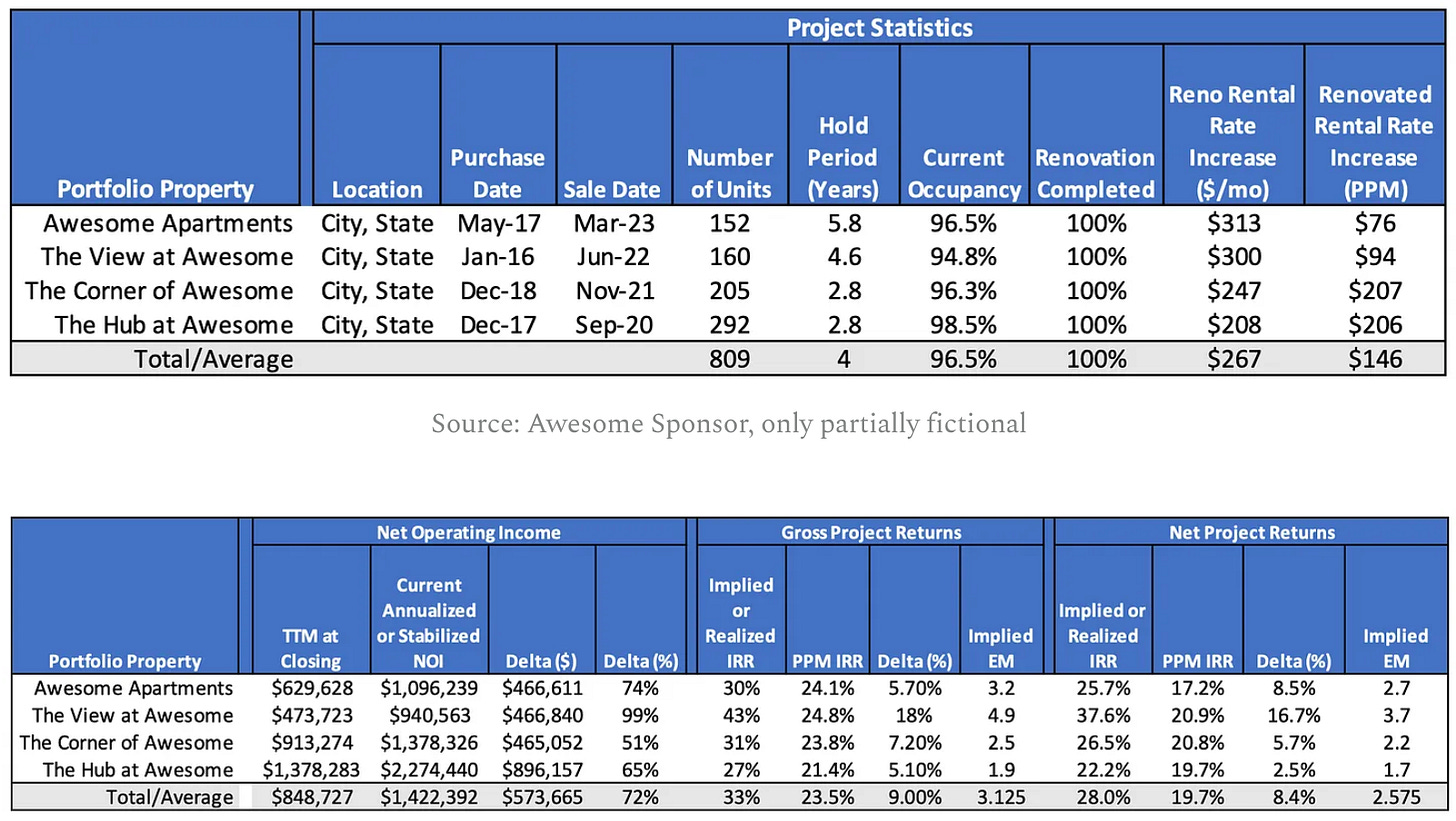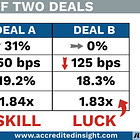1001 Pitch Decks: Stories GPs Need to Tell and LPs Need to Interpret
Insights from Reviewing 1,093 Decks—What Works, What Fails, and How to Read Between the Lines
I have a friend who invested a lot of money as a limited partner with one general partner (GP). My friend made well over seven figures over the years with this sponsor, having done countless deals. When I pressed for what gave him the confidence to place so much money with one operator, my friend replied:
“I would trust him with my baby. I never open his pitch decks, and now I don’t even look at the property address.”
This may sound reckless, and I certainly don’t recommend it, but it speaks to something much deeper: trust built over time. It’s not the deals my friend was investing in. It’s the sponsor. And that trust in the sponsor had nothing to do with beautiful pitch decks or perfectly modeled proformas.
Which brings us to an important concept:
💡 Counterparty Risk
As an LP, you cannot eliminate counterparty risk. There isn’t a stress test or spreadsheet that will show you the character of the sponsor. But you must try to understand the integrity of the people behind the presentation. Gauge their experience and incentives.
So what about the rest of us? LPs who don’t have blind trust in sponsors, and GPs who are yet to build long-term relationships and need to communicate effectively with potential investors?
Pitch decks are often the first communication LPs receive from GPs. Having reviewed 1,093 pitch decks over the years, I’ll channel my inner Scheherazade and tell you what works, what fails, and what LPs need to pay attention to. Don’t run away yet, it won’t take 1,001 nights.
Today, we’ll talk about best practices for crafting and evaluating pitch decks across these asset classes:
✅ Commercial Real Estate
✅ Private Equity
✅ Private Credit
At the end of the article you’ll find resources with pitch deck examples, best practices, and a great AI tool that can help generate marketing materials. Let’s start with the most important item:
📋 Detailed Track Record
Before we get deep into the weeds, the one item that every deck should include is the track record. This applies to every asset class, and every fund manager. Here’s an example (and an article on why this level of detail is important).







